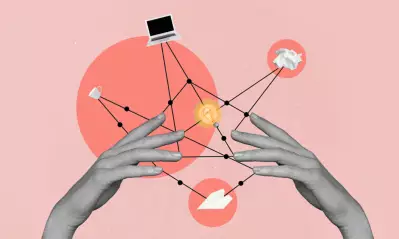What can you do with a communication degree?
This article was updated on January 2, 2024.

It's no surprise that a communication degree is essential to learning the skills necessary for a job in the communication field. If you know you want to work in journalism, social media or a related field, earning a degree in communication is a great way to prepare for a new career.
But which specific communication careers are out there? Below, we explore what you can expect to learn with a Bachelor of Science in Communication degree and a few of the careers in communication.
What do you learn in a communication degree program?
Earning a communication degree allows you to pursue a broad range of options using skills typically covered in communication courses, such as:
- Strategies for communicating to small groups or mass audiences
- Verbal, nonverbal, listening and conflict resolution skills
- Skills for effective intercultural communication
- Ethical implications of mass communication
- Communication law
What careers can a communication degree prepare you for?
A Bachelor of Science in Communication degree can teach you the writing and editing skills that can be applied in a number of industries, including advertising, public relations, copywriting and editing. In publishing, employers seek candidates with strong PR skills and, of course, writing and editing skills, even for entry-level positions.
Careers as an editor
Editors can demonstrate their value to a company through their communication skills, particularly in communicating with journalists, book reviewers, authors, agents and other clients. Editorial assistants also use their editing skills and social media savviness to work their way up to junior editor or managing/senior editor status.
As of May 2023, it's reported that editors earned between $38,790 and $138,920, with a median wage of $75,020, according to the U.S. Bureau Labor of Statistics (BLS).
Salary ranges are not specific to students or graduates of University of Phoenix. Actual outcomes vary based on multiple factors, including prior work experience, geographic location and other factors specific to the individual. University of Phoenix does not guarantee employment, salary level or career advancement. BLS data is geographically based. Information for a specific state/city can be researched on the BLS website.
Careers as a copywriter
Copywriters are a company's secret weapon. They may write social media posts, press releases, website content and often every public-facing word produced by the company. Many copywriters may also pursue a career as a content marketer, which generally focuses on writing marketing copy for public consumption, especially each page of text on a company's website.
Copywriters with a communication degree may also find themselves writing for large corporations, either as B2B copywriters (attracting other businesses to an employer) or general copywriters, hoping to build web traffic and attention for the company.
A copywriter might also look for careers as an author, including in areas like ghostwriting (writing a book published under an expert's name, for instance). Copywriters with a communication degree can also be full-time freelance journalists or reporters.
As of May 2023, writers (including copywriters) earned between $40,900 and $148,240, with a median wage of $73,690, according to BLS.
Careers as a communication specialist
As a communication specialist, you might spend your days drafting responses to Yelp reviews or leading a large company's communication strategy. Communication specialists may become event planners or managers, work in a company’s advertising department and even direct advertising efforts. The options for communication specialists are almost limitless within a company and can include other major responsibilities. A communication specialist role might be perfect for you if you want to work in a range of departments and on a variety of communication tasks to build your portfolio and resume.
Careers as a media relations specialist
A media relations specialist is similar to a communication specialist. As a media relations specialist, your job title might be media relations manager, public relations or even press liaison. Expect to build a rolodex or personal list of your media contacts since the best public relations managers spend time on and off the clock nurturing these contacts into strong, professional relationships they can call on in a myriad of ways. Other everyday tasks include carefully drafted emails requesting interviews with your high-profile CEO, as well as requests to be quoted (or listed as an unnamed spokesperson) in media reports about your company.
Do you envision yourself standing in front of a bank of microphones and TV cameras, helping a brand launch its new products or defend it in press interviews? Then being a media relations specialist may be the ideal career for you.
Learn more about communication degrees
If you're ready to look at communication degree programs, University of Phoenix offers a Bachelor of Science in Communication online, tailored for working adults.
Reach out to University of Phoenix for more information.

ABOUT THE AUTHOR
Brian Fairbanks is a freelance writer with a background in SEO content creation and blog article development
This article has been vetted by University of Phoenix's editorial advisory committee.
Read more about our editorial process.


